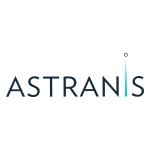
Astranis Satellite Built for Alaska Completes Critical TVAC Test on First Attempt
First commercial satellite from Astranis secures groundbreaking ‘all-perils’ insurance ahead of spring 2022 launch
SAN FRANCISCO–(BUSINESS WIRE)–Astranis announced today the successful completion of thermal vacuum (TVAC) testing for its first commercial MicroGEO satellite which is set to launch into orbit over Alaska in spring of next year. The satellite is earmarked for Pacific Dataport Inc. (PDI), a satellite middle mile provider headquartered in Anchorage, Alaska.
“Successfully completing TVAC is a huge milestone for any spacecraft, much less doing so on the first try,” said John Gedmark, CEO and co-founder of Astranis. “It is a testament to the experience, creativity, and attention to detail of the Astranis engineering team and means we’re on schedule to bring affordable broadband access to the underserved people of Alaska starting in 2022.”
TVAC is a rigorous testing process that simulates the extreme conditions of space. By placing the satellite inside a highly specialized test chamber — where temperatures can range from -190C to +150C and pressures can drop as low as 2e-5 torr — spacecraft performance can be assessed in an environment that approximates being more than 20,000 miles above the Earth. The Astranis spacecraft was exposed to four thermal cycles with the longest cold exposure lasting just under 48 hours and the longest hot exposure lasting roughly 24 hours.
This critical milestone follows the successful launch of a subscale demonstration satellite to orbit, the successful completion of TVAC testing of a qualification vehicle, and the successful completion of critical design review. It was previously announced that the satellite was in its final stage of assembly after a successful end-to-end payload demonstration that showed results above spec.
The Astranis MicroGEO satellite for PDI is set to launch as a rideshare onboard a SpaceX Falcon Heavy rocket in spring 2022. When the new satellite enters service, it will triple the available satellite broadband capacity in Alaska while providing broadband access at one-third the cost of existing services.
“There are people living all over the state of Alaska in some of the harshest conditions possible who need fast, reliable, affordable broadband internet access just as much as someone living in a major city,” said Chuck Schumann, CEO, Pacific Dataport Inc. “Connecting Alaska is what we started PDI to do, and we are now closer than ever to fulfilling this promise with the first satellite built for our home state.”
The Alaska-bound satellite from Astranis has also secured a new groundbreaking insurance policy. Known as “all perils” insurance, it covers launch plus the first year of operations on orbit. The policy was put in place following extensive due diligence from the satellite industry’s top insurance underwriters. Insurance broker Willis Towers Watson facilitated the placement of the policy.
“This is the first time a new satellite from a new space company has ever secured this kind of insurance policy,” said Gedmark. “It’s an incredible endorsement of the quality of our satellites, and a vote of confidence in our technology.”
To learn more about how Astranis MicroGEO satellites can deliver affordable broadband internet to unconnected people anywhere on the planet, visit Astranis.com.
About Pacific Dataport Inc.
Pacific Dataport Inc. (PDI) is a satellite middle mile provider headquartered in Anchorage, Alaska. PDI was founded “by Alaskans, for Alaskans” to enable Internet access for everyone, everywhere in Alaska. PDI is focused on providing affordable middle mile and last mile broadband using the newest satellite technology from the Aurora and OneWeb Networks. PDI clients include telecoms (wired & wireless), non-profits, hospitals, health clinics, schools, libraries, governments (Tribal, local, state & federal) and Alaska Native Corporations, Villages, and Tribes.
For more information on PDI please look to pacificdataport.com.
About Astranis
Astranis is building small, low-cost telecommunications satellites to connect the four billion people who currently do not have access to the internet. Each spacecraft operates from geostationary orbit (GEO) with a next-generation design of only 400 kg, utilizing a proprietary software-defined radio payload. This unique digital payload technology allows frequency and coverage flexibility, as well as maximum use of valuable spectrum. By owning and operating its satellites and offering them to customers as a turnkey solution, Astranis is able to provide bandwidth-as-a-service and unlock previously unreachable markets. This allows Astranis to launch small, dedicated satellites for small and medium-sized countries, Fortune 500 companies, existing satellite operators, and other customers.
Astranis has successfully launched a test satellite into orbit and is now underway with its first commercial program—a satellite to provide broadband internet for Alaska that will more than triple the available bandwidth across the state. This satellite is now in final assembly and set for a launch in 2022. The company is headquartered in San Francisco with a team of over 175, including world-class engineers from SpaceX, Boeing, Skybox, Qualcomm, Apple, and Google. Astranis has raised over $350 million from top Silicon Valley and growth investors, including Andreessen Horowitz, Venrock, and BlackRock.
For more information, follow along at Astranis.com or on Twitter at @astranis_space.
Contacts
Andrew Flick
aflick@astranis.com

